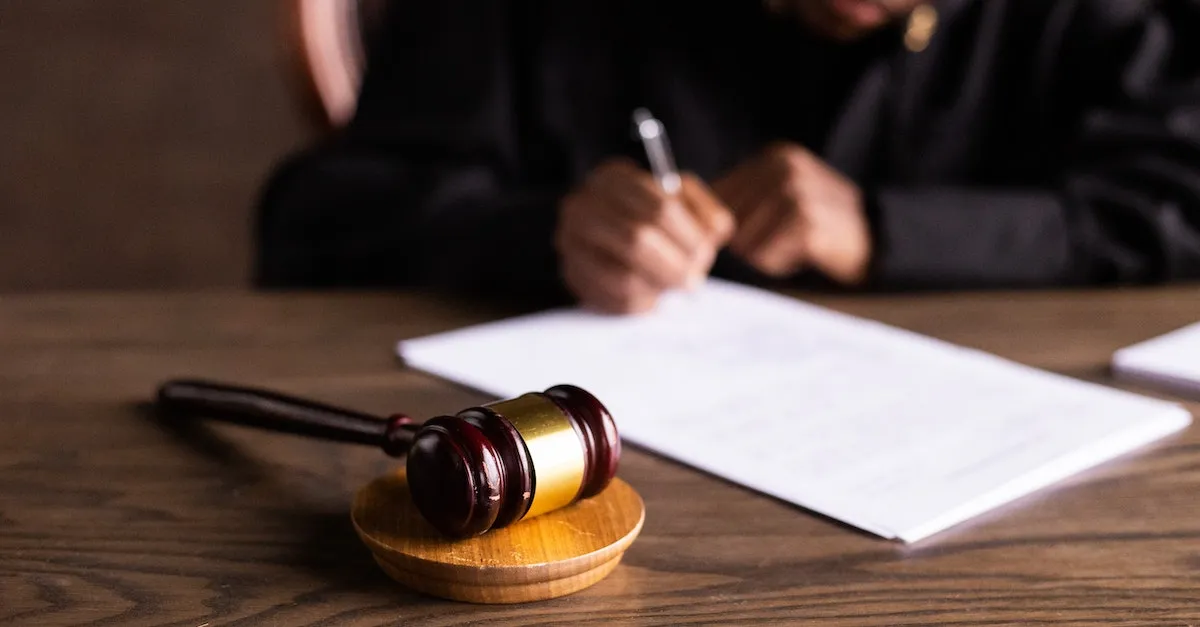How To Get A Warrant Lifted In Texas
Getting arrested can be a scary and stressful situation. Even after you’ve been released, an outstanding warrant can negatively impact your life if you need to get a job, rent an apartment, or apply for loans.
If you’re short on time, here’s a quick answer to your question: The best way to get a warrant lifted in Texas is to hire a criminal defense lawyer who can file a motion to quash the warrant or negotiate with the prosecutor to recall the warrant. However, you may also be able to get the warrant lifted by turning yourself in or paying outstanding fines.
In this comprehensive guide, we’ll cover everything you need to know about how to get a warrant lifted in Texas, including different types of warrants, steps you can take, and what to expect from the process.
Understanding Arrest Warrants in Texas
Before diving into the process of getting a warrant lifted in Texas, it is essential to understand what arrest warrants are and how they are issued. An arrest warrant is a legal document issued by a judge that authorizes law enforcement officers to arrest an individual suspected of committing a crime.
It is important to note that arrest warrants are specific to the state of Texas and may vary in other jurisdictions.
Types of Warrants
In Texas, there are two main types of arrest warrants: felony warrants and misdemeanor warrants. Felony warrants are issued for more serious crimes, such as murder, robbery, or sexual assault. Misdemeanor warrants, on the other hand, are issued for less serious offenses, like petty theft or driving under the influence.
It is also worth mentioning that there are other types of warrants, such as bench warrants and alias warrants. A bench warrant is issued when an individual fails to appear in court as required. An alias warrant, on the other hand, is issued when an individual fails to appear in court after being summoned.
Reasons Warrants Are Issued
There are several reasons why arrest warrants are issued in Texas. The most common reason is when law enforcement officers have probable cause to believe that an individual has committed a crime. This can be based on evidence gathered during an investigation or information provided by witnesses.
Another reason for the issuance of an arrest warrant is when an individual fails to appear in court after being summoned or violates the terms of their probation. In such cases, a judge may issue a warrant to ensure the individual’s presence in court or to enforce the conditions of their probation.
Checking for Outstanding Warrants
If you suspect that there may be an outstanding warrant for your arrest in Texas, it is crucial to check with the appropriate authorities. The Texas Department of Public Safety provides an online search tool called the Texas Public Sex Offender Registry, which allows individuals to search for registered sex offenders in their area.
Although this tool does not provide information on all types of warrants, it can be a starting point for checking if there are any outstanding warrants against you.
It is also advisable to contact the local law enforcement agency or courthouse in the jurisdiction where you believe the warrant may have been issued. They will be able to provide you with more accurate and up-to-date information regarding any outstanding warrants against you.
Remember, it is always better to address any outstanding warrants promptly and legally. Ignoring a warrant can lead to more severe consequences and difficulties in resolving the issue. Seek legal advice and take the necessary steps to get a warrant lifted in Texas.
Steps to Take to Get a Warrant Lifted
If you find yourself with an outstanding warrant in Texas, it’s important to take the necessary steps to get it lifted. Ignoring the warrant can lead to serious consequences, including arrest and additional charges. Here are some steps you can take to get a warrant lifted:
Hire a Criminal Defense Lawyer
One of the first steps you should take when dealing with a warrant is to hire a criminal defense lawyer. A lawyer can help guide you through the process and provide you with valuable advice on how to proceed.
They can also review your case and determine if there are any grounds to challenge the warrant.
Turn Yourself In
While it may seem counterintuitive, one of the best ways to get a warrant lifted is to turn yourself in. By voluntarily surrendering to law enforcement, you show that you are taking responsibility for your actions.
This can help you when it comes to resolving the underlying case and can also demonstrate to the court that you are willing to cooperate.
Request a Warrant Recall
In some cases, it may be possible to request a warrant recall. This involves asking the court to recall the warrant and lift it. To do this, you will typically need to provide a valid reason for why the warrant should be recalled, such as new evidence or a change in circumstances.
It’s important to consult with your lawyer to determine if this is a viable option in your case.
File a Motion to Quash
If you believe that the warrant was issued improperly or that there are legal issues surrounding it, you can file a motion to quash. This is a legal document that challenges the validity of the warrant. Your lawyer can help you prepare and file the motion, and argue your case in court if necessary.
Resolve Underlying Case
To fully get a warrant lifted, you will need to resolve the underlying case. This may involve negotiating a plea deal, going to trial, or having the charges dismissed. Your lawyer will work with you to determine the best course of action based on the specifics of your case.
Remember, it’s important to consult with a qualified criminal defense lawyer if you have an outstanding warrant. They can provide you with the guidance you need to navigate the legal system and protect your rights.
How a Lawyer Can Help
Dealing with a warrant in Texas can be a stressful and overwhelming experience. However, hiring a lawyer can significantly alleviate the burden and increase your chances of resolving the situation successfully. Here are a few ways in which a lawyer can help:
Negotiate with the Prosecutor
One of the primary roles of a lawyer when it comes to getting a warrant lifted is negotiating with the prosecutor. A skilled lawyer will have experience in handling such negotiations and can advocate for a favorable outcome on your behalf.
They will review the evidence against you, identify any weaknesses in the prosecution’s case, and present compelling arguments to convince the prosecutor to withdraw the warrant. By leveraging their legal knowledge and negotiation skills, a lawyer can potentially secure a resolution that avoids the need for a court appearance.
Advocate on Your Behalf in Court
If your case does go to court, having a lawyer by your side becomes even more crucial. Your lawyer will act as your advocate, presenting a strong defense to the judge and jury. They will thoroughly analyze the circumstances surrounding the warrant, gather any necessary evidence or witnesses, and develop a strategy to challenge the validity of the warrant.
With their expertise in Texas law and courtroom procedures, a lawyer can navigate the legal system effectively, ensuring that your rights are protected and your voice is heard.
Increase Chances of Success
Ultimately, the goal of hiring a lawyer is to increase your chances of success in getting the warrant lifted. Their in-depth knowledge of the legal system, familiarity with Texas laws, and experience in handling similar cases can significantly enhance your defense.
By thoroughly examining the details of your situation, your lawyer can identify any potential legal loopholes, procedural errors, or constitutional violations that may invalidate the warrant. This attention to detail and proactive approach can maximize your chances of a positive outcome, whether it be through negotiation or litigation.
It’s important to note that every case is unique, and the specific actions a lawyer will take to get your warrant lifted will depend on the circumstances surrounding your case. Consulting with an experienced lawyer will provide you with a personalized strategy tailored to your situation, giving you the best chance at resolving the warrant in your favor.
For more information on how a lawyer can help you get a warrant lifted in Texas, you can visit the Texas Bar Association website or consult with a local attorney who specializes in criminal defense.
What to Expect at a Motion to Quash Hearing
Prosecution Presents Reason for Warrant
During a motion to quash hearing, the prosecution will present the reason for the warrant that has been issued. They will provide evidence and arguments to support their case and convince the judge that the warrant should remain in place.
This may include presenting witness testimonies, surveillance footage, or any other relevant information that strengthens their argument.
Defense Argues Against Warrant
The defense will have the opportunity to argue against the warrant and present their own evidence or arguments to challenge its validity. They may question the credibility of the prosecution’s evidence, highlight any potential violations of the defendant’s rights, or provide alternative explanations for the alleged offense.
The defense’s goal is to persuade the judge that the warrant should be quashed and the defendant’s rights should be protected.
Judge Decides Whether to Quash Warrant
Ultimately, it is the judge’s responsibility to decide whether to quash the warrant or allow it to remain in effect. The judge will carefully consider the arguments presented by both the prosecution and the defense before making a decision.
They will evaluate the strength of the evidence, the legality of the warrant, and any other factors that may impact the case. The judge’s decision will determine whether the warrant will be lifted or if the case will proceed based on the existing warrant.
It is important to note that the outcome of a motion to quash hearing can vary depending on the specific details of the case and the judge’s interpretation of the law. Therefore, it is crucial for both the prosecution and the defense to present their arguments effectively and provide compelling evidence to support their positions.
Potential Consequences of Outstanding Warrants
Having an outstanding warrant can lead to various consequences that can significantly impact a person’s life. It is crucial to understand these potential consequences in order to take appropriate action and get the warrant lifted as soon as possible.
Arrest and Jail Time
One of the most immediate consequences of having an outstanding warrant is the risk of arrest and potential jail time. Law enforcement agencies actively search for individuals with warrants and can arrest them at any time. This can happen during routine traffic stops, at home, or even at work.
It is essential to address the warrant promptly to avoid the stress and disruption that comes with being arrested.
Problems Getting Jobs or Housing
An outstanding warrant can create significant obstacles when it comes to finding employment or securing housing. Many employers and landlords conduct background checks as part of their screening process, and having a warrant can make a person appear unreliable or untrustworthy.
This can lead to missed opportunities and difficulties in moving forward with one’s life. By resolving the warrant, individuals can improve their chances of obtaining employment and finding stable housing.
Difficulty Accessing Government Benefits
Holding an outstanding warrant can also make it challenging to access certain government benefits and services. Government agencies often require individuals to have a clean record in order to qualify for assistance programs or benefits.
Having a warrant can deem a person ineligible for such support, creating additional hardships. By resolving the warrant, individuals can regain access to the necessary resources they may need.
It is important to note that the consequences mentioned above may vary depending on the specific situation and jurisdiction. Therefore, it is always advisable to consult with an attorney or legal expert to fully understand the potential implications of an outstanding warrant and the best course of action to take.
Conclusion
Getting an arrest warrant lifted in Texas takes effort, but is possible in many cases. With the help of a criminal defense lawyer, you may be able to recall the warrant or convince a judge to quash it at a motion hearing. Understanding the warrant process and taking proactive steps can help you move forward with your life.
While an outstanding warrant feels stressful and limiting, you have options to resolve the situation. Don’t wait – take action by seeking legal help to get the warrant lifted so you can freely go about your daily activities and put the situation behind you.








